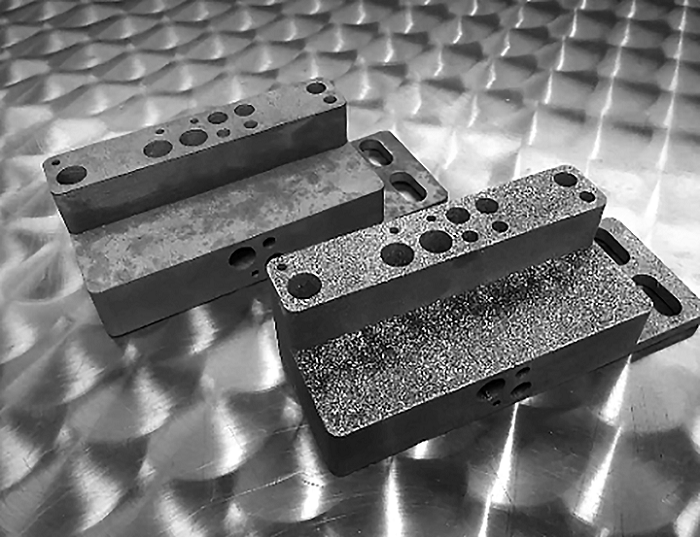ASTM F1089 Passivation and Surface Cleanliness Testing of Medical Devices
The ASTM F1089 standard is specifically designed to ensure that medical devices meet stringent surface cleanliness and passivation requirements, which are critical for the safety and efficacy of medical products. This service focuses on testing materials used in medical implants, catheters, and other devices to guarantee they do not harbor harmful contaminants or interfere with biocompatibility.
Passivation is a process that removes free iron from stainless steel surfaces by forming an oxide layer. This layer enhances the material's resistance to corrosion, which is crucial for long-term performance in medical applications. Surface cleanliness testing ensures that no foreign materials are present on the surface of the device that could potentially cause adverse effects.
The ASTM F1089 test involves several steps: first, a chemical cleaning process followed by water rinsing and air drying. Then, the sample is immersed in nitric acid for passivation. After this step, the sample undergoes another rinse and drying procedure before final testing. The cleanliness of the surface is determined using a scanning electron microscope (SEM) to detect any residual contamination.
The test results are reported according to ASTM F1089 criteria, which includes measurements of the oxide layer thickness and the presence of contaminants. Compliance with these standards ensures that medical devices meet regulatory requirements set by organizations such as the FDA in the U.S., EMA in Europe, and other global health authorities.
Our laboratory adheres strictly to ASTM F1089 protocols to provide accurate and reliable testing results. By conducting this test, we help manufacturers ensure their products are safe for patients and comply with international standards. This service is essential for companies developing new medical devices or those seeking to validate existing designs.
The process involves meticulous sample preparation to avoid introducing any contamination that could affect the outcome of the tests. Our team uses advanced equipment like SEMs, scanning electron microscopy software, and other precision instruments to ensure accurate measurements and detailed analysis.
Compliance with ASTM F1089 is particularly important for medical device manufacturers because it ensures their products are safe from harmful contaminants and meet biocompatibility standards. This testing helps prevent issues such as infections or allergic reactions that could arise from improperly treated surfaces.
Scope and Methodology
The ASTM F1089 standard covers the passivation treatment of stainless steel medical devices to enhance their resistance to corrosion. The test also checks for surface cleanliness, ensuring that no foreign materials are present on the device surfaces.
- Passivation: Stainless steel samples are immersed in nitric acid to form an oxide layer on the surface.
- Cleaning: Samples undergo a series of rinses and drying processes to remove any contaminants.
- Microscopy Analysis: Scanning electron microscopy (SEM) is used to examine the surface for cleanliness and the presence of contaminants or imperfections.
The methodology ensures that all medical devices meet stringent quality control standards, thereby enhancing patient safety. The results are meticulously documented and reported according to ASTM F1089 specifications. This testing process is essential for manufacturers who need to validate their products' compliance with regulatory requirements.
Our laboratory employs experienced technicians using cutting-edge equipment to ensure precise and reliable test outcomes. By adhering strictly to ASTM F1089 protocols, we provide accurate data that supports the safety and efficacy of medical devices.
Benefits
Compliance with ASTM F1089 standards is essential for medical device manufacturers as it ensures their products meet strict quality control requirements. This compliance enhances patient safety by preventing issues such as infections or allergic reactions that could arise from improperly treated surfaces.
- Enhanced Safety: By ensuring the absence of harmful contaminants, these tests contribute to safer healthcare practices.
- Regulatory Compliance: Meeting ASTM F1089 standards helps manufacturers avoid regulatory penalties and maintains their reputation in the market.
- Improved Product Quality: Rigorous testing ensures that medical devices perform consistently across different environments, reducing variability in product performance.
The results of these tests are critical for quality managers and compliance officers who need assurance that their products meet international standards. R&D engineers can use the data to refine their designs and processes, ensuring they remain at the forefront of innovation. Procurement teams benefit from knowing that the materials they source have undergone rigorous testing.
By offering this service, our laboratory helps manufacturers ensure their products are safe for patients and compliant with regulatory requirements. This commitment to quality is essential in the medical device industry where patient safety and product efficacy are paramount.
Industry Applications
- Biomaterials: Testing ensures that biomaterials used in implants do not contain harmful contaminants.
- Catheters: Ensuring catheter surfaces are clean and free from imperfections is critical for preventing infections.
- Orthopedic Implants: Passivation treatment helps prevent corrosion, which can lead to device failure or patient injury.
- Surgical Instruments: Cleanliness testing ensures that instruments are safe for use in surgeries without introducing contaminants into the operating environment.
The ASTM F1089 passivation and surface cleanliness test is particularly important for medical device manufacturers as it ensures their products meet stringent quality control standards. This compliance enhances patient safety by preventing issues such as infections or allergic reactions that could arise from improperly treated surfaces.
Our laboratory adheres strictly to ASTM F1089 protocols to provide accurate and reliable testing results. By conducting this test, we help manufacturers ensure their products are safe for patients and comply with international standards. This service is essential for companies developing new medical devices or those seeking to validate existing designs.





